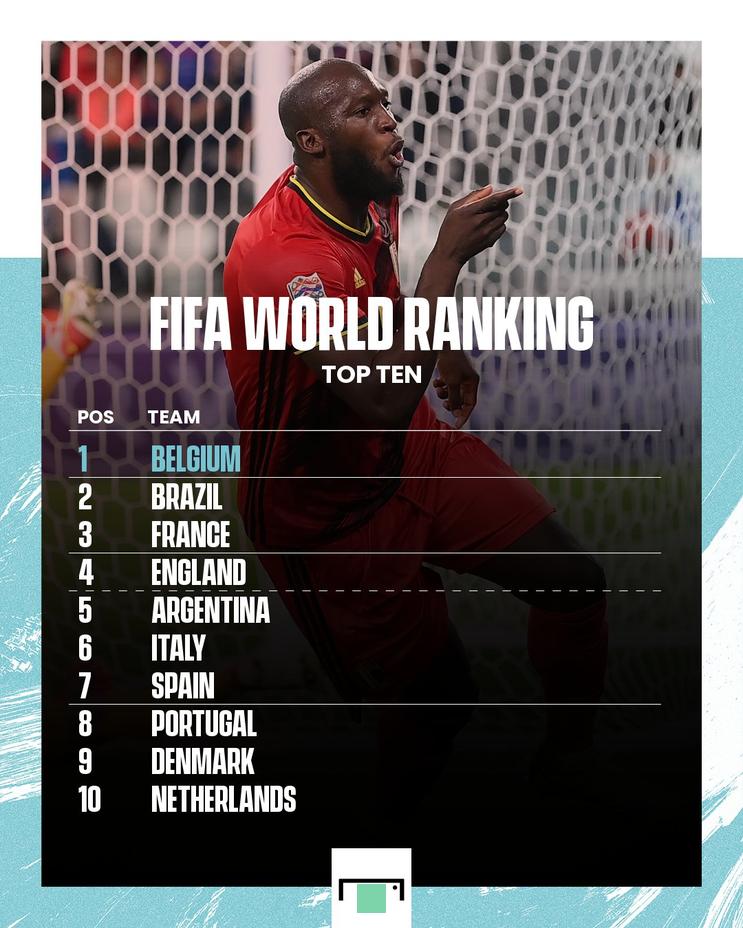Ranking the 7 Best International Men’s Soccer Teams Ever, Including Spain and Argentina

The beautiful game, as it’s affectionately known, has seen countless teams rise and fall through the ages. But some have etched their names in history, achieving legendary status through consistent brilliance and stunning victories. Today, we embark on a captivating journey to rank the seven greatest international men’s soccer teams ever, with a special focus on the powerhouses of Spain and Argentina.
Ranking these titans is no mean feat. It’s a subjective exercise, demanding careful consideration of multiple factors, including trophy cabinets, individual talent, stylistic impact, and sheer dominance. We’ll be delving into the heart of each era, analyzing their iconic moments, and showcasing why they deserve a place among the elite.
Prepare to be transported to the heart of the action as we relive epic clashes, celebrate unforgettable goals, and unravel the secrets behind these teams’ enduring legacies.
- The legendary Brazilian squad of 1970 is often considered the greatest international men’s soccer team ever, known for their dazzling “Jogo Bonito” style and dominance in the 1970 World Cup.
- Led by iconic players like Pelé, Jairzinho, and Carlos Alberto Torres, Brazil’s 1970 team showcased a blend of flair, finesse, and ruthless efficiency that redefined attacking football.
- Their 4-1 victory over Italy in the final was a masterclass in attacking football, highlighting the collective symphony of play that left the world in awe.
- Brazil’s 1970 team’s enduring legacy lies in their influence on the game, inspiring generations of players and coaches to prioritize artistry and style alongside winning.
1. Brazil (1970)
Let’s begin with the team that many consider the greatest of all time: the legendary Brazilian squad of 1970. This team wasn’t just about winning; it was about artistry on the pitch. They redefined the game with their dazzling “Jogo Bonito” (beautiful game) style, a blend of flair, finesse, and ruthless efficiency. They didn’t just win the 1970 World Cup, they dominated it.
Led by the iconic figure of Pelé, this team had a constellation of stars: Jairzinho, Tostão, Gerson, Rivelino, and Carlos Alberto Torres. Their victories weren’t just about individual brilliance; it was about the collective symphony of their play. Their 4-1 victory over Italy in the final was a masterclass in attacking football, a spectacle that left the world in awe.
The 1970 Brazilian team wasn’t simply a collection of talented players; they were a team of destiny. Their influence on the game is undeniable. They redefined the concept of attacking football, inspiring generations of players and coaches. Their legacy lives on, reminding us that football is not just about winning; it’s about the art of the game.
2. Spain (2008-2012)

Spain’s dominance in the late 2000s was nothing short of remarkable. They ushered in a new era of “tiki-taka” football, a style that emphasized possession, short passes, intricate movement, and patient build-up play. It was a radical departure from the more direct, attacking styles that dominated the game at the time.
This team boasted a generation of exceptional talents: Iker Casillas, Sergio Ramos, Gerard Piqué, Carles Puyol, Xavi Hernández, Andrés Iniesta, David Villa, Fernando Torres, and Cesc Fàbregas. Their dominance was evident in their consecutive major tournament victories: the 2008 European Championship, the 2010 World Cup, and the 2012 European Championship.
Spain’s “tiki-taka” revolutionized the game. It was a testament to their tactical brilliance and the exceptional talents of their players. They proved that beautiful football could be both dominant and successful, leaving an indelible mark on the sport’s history.
3. Argentina (2021-2024)
The current Argentinian team, led by the talismanic Lionel Messi, is arguably the most dominant team in the world right now. Their 2022 World Cup triumph, after years of near misses, was a testament to their resilience, determination, and the sheer brilliance of their captain.
While Messi is undoubtedly their most celebrated player, he is not alone. Players like Ángel Di María, Lautaro Martínez, Rodrigo De Paul, and Nicolás Otamendi have formed a formidable unit under manager Lionel Scaloni. Their blend of individual talent and tactical discipline has made them a force to be reckoned with.
Argentina’s current dominance is a result of years of development. They’ve overcome adversity and internal conflicts to achieve their ultimate goal: a third World Cup title. This team will be remembered for its fighting spirit, its never-say-die attitude, and its ability to rise to the occasion when it matters most.
4. Brazil (1958-1962)
The Brazilian team of the late 1950s and early 1960s is another contender for the title of greatest ever. This era was marked by the emergence of a young star named Pelé, who quickly became a global icon. He was surrounded by a supporting cast of brilliant players like Garrincha, Didi, Vavá, and Zito.
This team won the 1958 and 1962 World Cups, showcasing an electrifying blend of pace, skill, and creativity. They revolutionized the game with their attacking flair and individual brilliance, leaving opponents in their wake. Their performances were a testament to the sheer joy and artistry of the game.
This Brazilian team is remembered not only for its victories but also for the way they played. They were a joy to watch, inspiring millions with their flair and passion. Their influence on the game is undeniable, shaping the way football is played to this day.
5. France (1998-2000)
France’s golden generation of the late 1990s dominated international football, capturing the hearts of fans with their dynamic and exciting style. This team, spearheaded by the likes of Zinedine Zidane, Thierry Henry, Marcel Desailly, Fabien Barthez, and Lilian Thuram, was a force to be reckoned with.
Their 1998 World Cup triumph was a defining moment for French football. Their victory in the final against Brazil, courtesy of a Zidane header, was a testament to their talent, determination, and ability to rise to the occasion. They followed this up with victory in the 2000 European Championship, cementing their status as a true force in world football.
This French team redefined the concept of attacking football. They were a team of individual brilliance, but they also played with an understanding and cohesion that made them truly special. Their legacy lives on, inspiring future generations of French players.
6. Italy (1934-1938)
The Italian team of the 1930s, known as the “Grande Torino,” was a powerhouse in its own right. They were a team of strength, discipline, and tactical brilliance, renowned for their defensive solidity and counter-attacking prowess.
Led by the legendary Vittorio Pozzo, they won the 1934 and 1938 World Cups, becoming the first team to achieve back-to-back World Cup victories. The team was known for its defensive prowess and its ability to exploit opportunities on the counter-attack, a tactic that many Italian teams still employ today.
Italy’s “Grande Torino” was a team of its era, a product of a particular style of play that emphasized pragmatism and discipline. Their victories were a testament to their tactical brilliance and their ability to adapt to different opponents. Their legacy lives on, shaping the way Italian football is played to this day.
7. West Germany (1970-1976)
The West German team of the early 1970s was a force to be reckoned with, renowned for its tactical discipline, its counter-attacking prowess, and its ability to grind out results. This team had a core of players who had reached the World Cup final in 1966, including Franz Beckenbauer, Gerd Müller, and Sepp Maier.
They reached the 1974 World Cup final, defeating the Netherlands in a thrilling match, showcasing a tactical approach that emphasized discipline, organization, and counter-attacking efficiency. This team was a symbol of German football’s commitment to organization and discipline.
The West German team of the early 1970s was a team of resilience and determination. They were a product of a footballing culture that emphasized hard work and discipline, and their success was a testament to their ability to translate these values into victories on the pitch.
Ranking these seven teams is a subjective exercise. Each team possessed its own unique strengths and weaknesses, and their achievements are a testament to the remarkable evolution of the game. Ultimately, the true measure of their greatness lies in their enduring legacy, their impact on the sport, and their ability to inspire future generations of players and fans.
From the artistry of Brazil in 1970 to the tactical brilliance of Spain in the late 2000s, from the resilience of Argentina in 2022 to the grit of West Germany in the 1970s, these teams have etched their names in the annals of football history. Their achievements serve as a reminder of the enduring power of the beautiful game and its ability to captivate the world.








